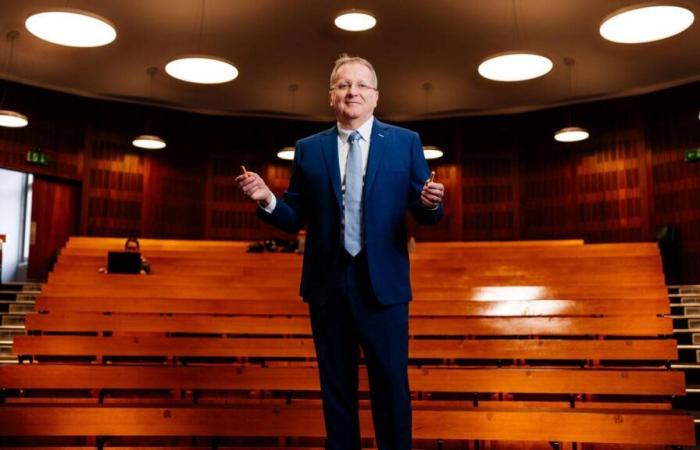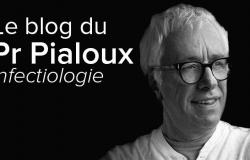Published on December 19, 2024 at 10:10. / Modified on December 19, 2024 at 10:17.
5 mins. reading
In the aula of the Faculty of Sciences of the University of Neuchâtel, where the chatter of around a hundred students resonates, silence reigns as soon as Maxime Zuber begins a recall on the Markov channels. Throughout the mathematics teacher’s explanations, we understand how the use of matrices makes it possible to calculate the evolution of a population made up of non-smokers and smokers over a given period. “At the time, it always ended up being balanced at two-thirds non-smokers to one-third smokers,” he concludes. This is important to know if you have to plan spaces reserved for one or the other category, for example when the trains still had smoking carriages,” he illustrates.
In November, he was recognized with the Credit Suisse Best Teaching Award, which recognizes the best teaching at the institution. The former autonomist mayor of Moutier is all the more proud of this prize “because it comes from the students”, in a university where he has taught for more than thirty years, after having completed his studies and his doctorate there.
Follow the news with us and support demanding and daring journalism
For the end-of-year holidays, take advantage of -25% on your annual subscription ????
Quality information just a click away. Offer valid until December 25, 2024.
I subscribe
Good reasons to subscribe to Le Temps:
- Unlimited access to all content available on the website
- Unlimited access to all content available on the mobile application
- Sharing plan of 5 articles per month
- Consultation of the digital version of the newspaper from 10 p.m. the day before
- Access to supplements and T, the Temps magazine, in e-paper format
- Access to a set of exclusive benefits reserved for subscribers
Already have an account?
Log in
Local
Swiss






